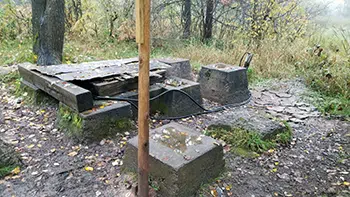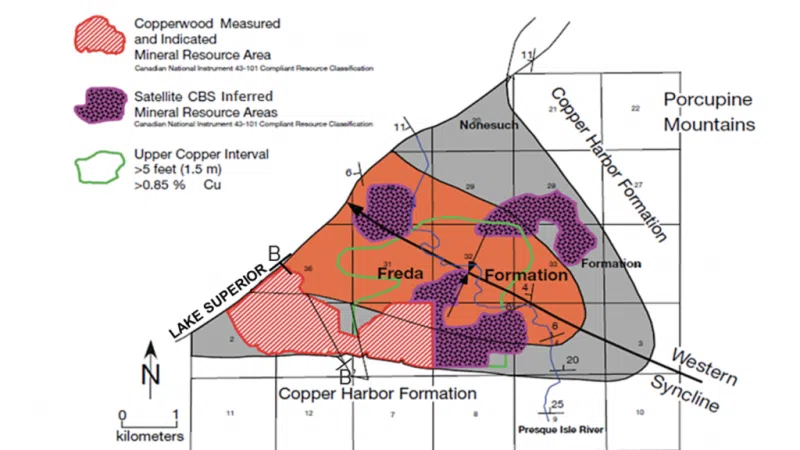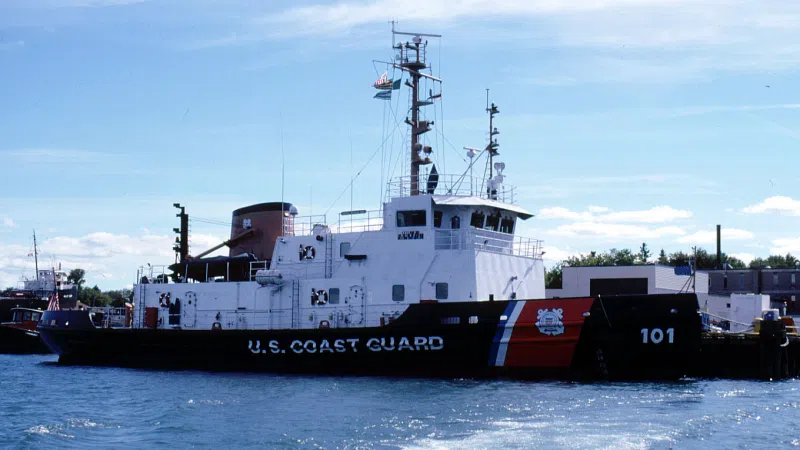The Michigan Department of Natural Resources has been ordered to shut down an unregulated water source at a roadside access point some locals have used for drinking water and other household needs for decades.
An order was issued to the DNR in December by the Michigan Department of Environment, Great Lakes, and Energy.
“The DNR needs to cease and desist serving water to the public by use of the trailside flowing water outlet by Feb. 6, 2023, and to provide written notice within 30 days to any residential structures served by the non-potable water supply that water service will be discontinued on or before June 30, 2023,” the order states.
The order also requires the DNR to permanently abandon the well and water system by plugging the existing well and/or plugging and discontinuing use of the existing water supply piping infrastructure by no later than June 30, 2023.
The water source supplying the public through a makeshift spigot and hosing exists at the former site of Lake Mine, a former mining community located in Greenland Township.
“This supply is providing water to the public via a flowing well outlet along the Bill Nichols Rail-Trail and is suspected of providing water for year-round use to at least two permanent residential structures,” the order states. “To date, all efforts to identify and locate the source, presumed to be on state forest land, have been unsuccessful and, despite explicit signage directing people not to drink the water, the public continues to use water for consumption and other household purposes.”
Tom Seablom, western Upper Peninsula district manager for the DNR’s Forest Resources Division, said upon the discovery of a water source that seems to originate on state land, a series of rules and responsibility is triggered.
“This is a very old unregulated water system, that has not been tested for all the required parameters and appears to contain nearly a mile of water line beneath an old railroad grade with piping that is in questionable condition,” Seablom said.
Evaluation, to date, points to a historical mining borehole, creating a spring, which was tapped as a source. This appears to lack any protections of a potable groundwater system, such as a water well casing.
“As the water supply’s source remains unknown, EGLE cannot assess its construction or location to determine that it does not pose a health or safety risk to consumers or groundwater resources,” the order states. “For these reasons, EGLE has determined that this water supply is an abandoned water well which must be plugged.”
The DNR asks that anyone with historical information on the source of the water to contact Ron Yesney or Tom Seablom at the DNR.
Since the discovery of this water supply, the DNR has been working with the local health department, EGLE, the Michigan Department of Health and Human Services, Ontonagon County and Greenland Township to address concerns with this site. The offices of state legislators Ed McBroom and Greg Markkanen had also been contacted.
Because the source cannot be located the water cannot be considered suitable for drinking.
The two residences appear to be connected to this supply. Multiple attempts to connect with the two lease holders have been made with no response to date.
“Several agencies have worked together for over a year to provide drinking water to those two buildings,” Seablom said.
Signs posted by the DNR alert the public that those drinking the water do so at their own risk. Several of the signs have been removed illegally by vandals and discarded.
The DNR has contacted several contractors to assist in conclusively locating the water source but have not been successful in locating a contractor with the necessary equipment. In addition, personnel from EGLE’s Geological Services Section assisted in trying to locate the water source at the site in November 2022.
“All these attempts have been unsuccessful given electrical infrastructure in the vicinity and the terrain,” said Ron Yesney, U.P. trails coordinator for the DNR’s Parks and Recreation Division. “The only remaining option would be excavation of the system, which is likely to be cost prohibitive and may collapse the line.”
In a letter to EGLE from Seablom, the DNR detailed its planned response to the order, which is to shut off water flow to the roadside access point. The DNR is asking for a four-day extension until Feb. 10 to complete the process.
The department also will discontinue service at the two residences by June 30, 2023, as ordered. As for the permanent closure of the water source, the DNR will properly abandon the source or if that is shown to be unfeasible then the piping will be cut-off at ground level and covered with rocks and other rip-rap materials. The water will then be able flow in a dispersed fashion to a nearby creek.

























Comments